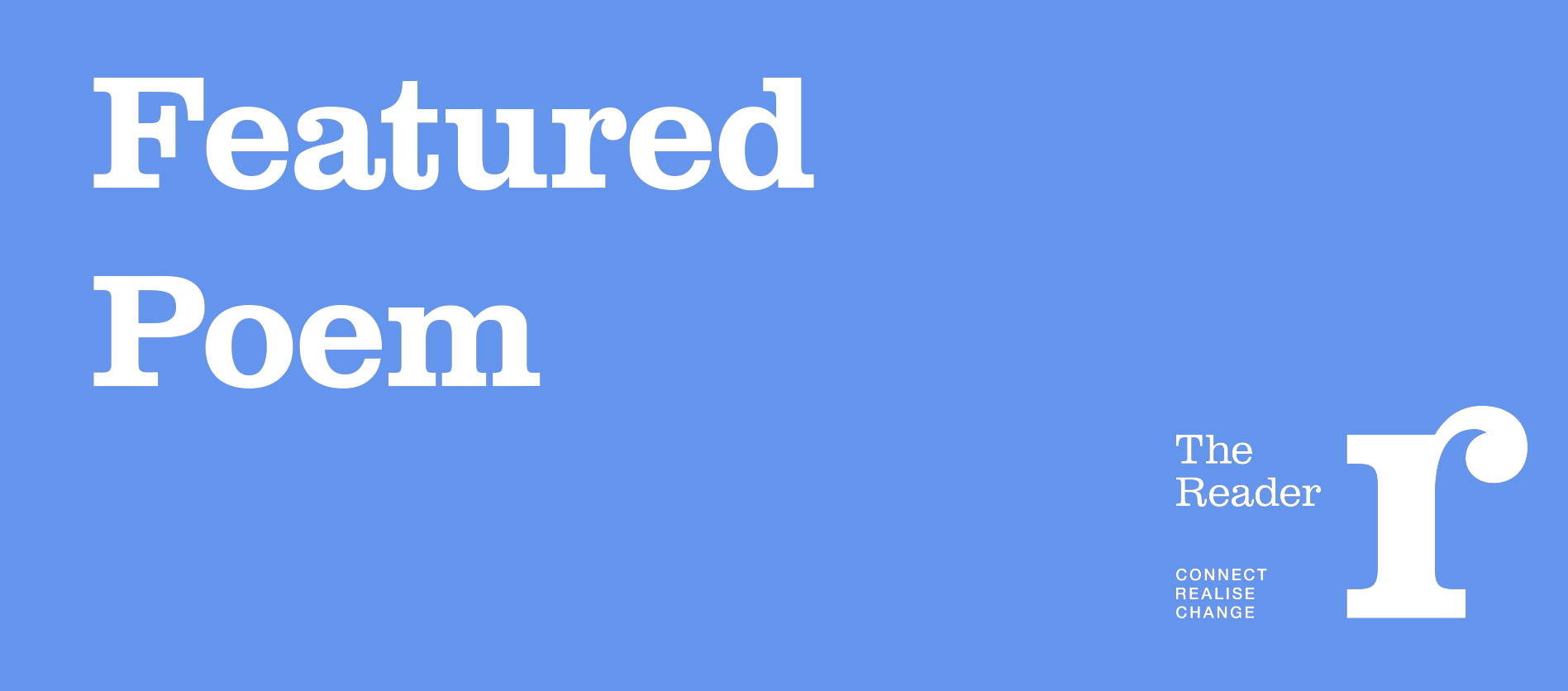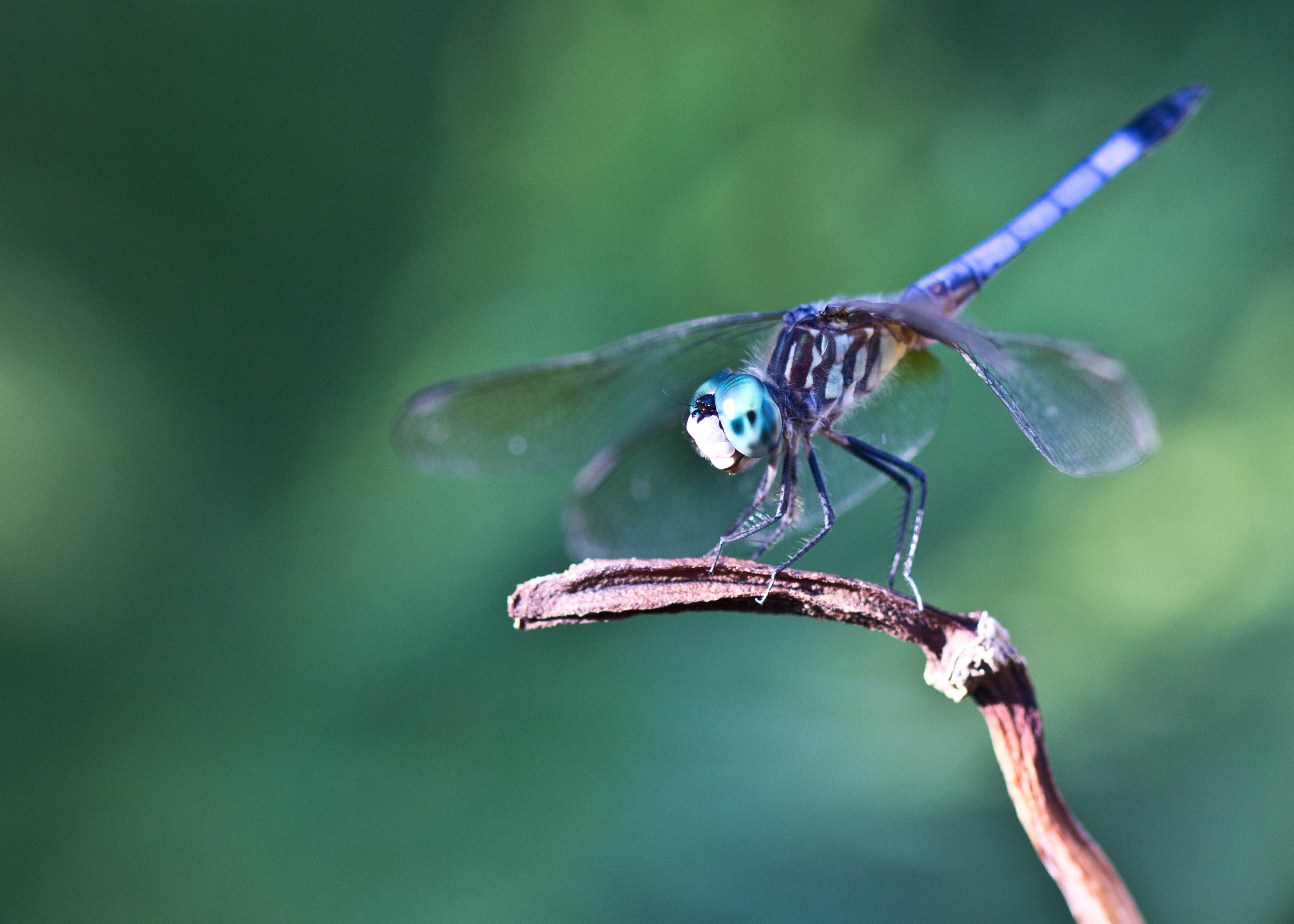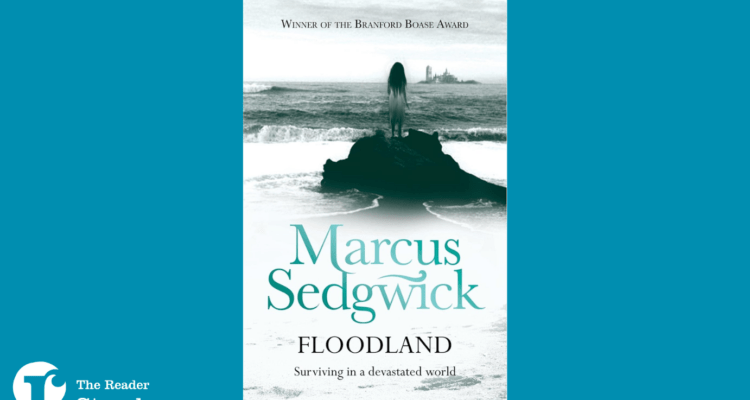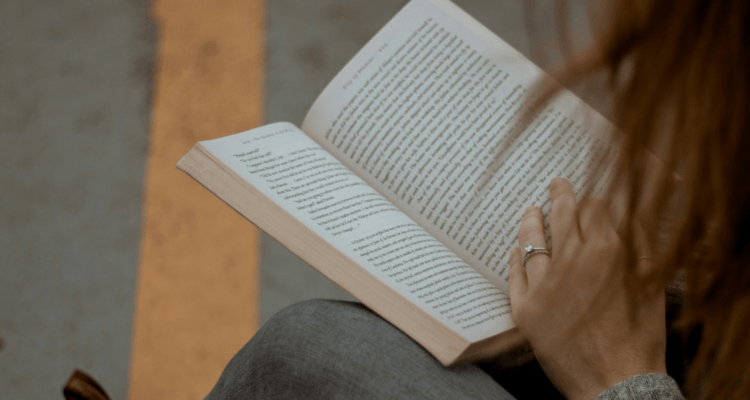Featured Poem: The Dragonfly by Alfred Lord Tennyson

An interesting extract to blow the cobwebs off this Monday morning, The Dragonfly by Alfred Lord Tennyson stands as a ray of light breaking through from a darker, more desolate source.
This week's Featured Poem is an extract from Tennyson's controversial The Two Voices. Originally titled The Thoughts of a Suicide, Tennyson was mourning the death of his friend Arthur Hallam when he penned the original manuscript. He described himself as being "utterly miserable" at the time and admitted that he was questioning his own life's worth.
This hopelessness is palpable throughout The Two Voices as the speaker trying to ward off the heavy gloom of the abstract voice, thought to be satanic, that torments him. Oddly, The Dragonfly extract below, despite reading as uplifting and awe inspiring in isolation, actually comes from the dark voice of doom.
Defying the voice's insistence that he should 'put himself out of his misery' the speaker refutes that he should not throw away what god has made. The voice replies with the allegory of the dragonfly, who emerges from his "old husk" to reveal new sleek brilliance.
Reading the extract in isolation it's hard to imagine it bending to such a dark purpose as persuading a desperate man to give up his life. There is certainly a sense of renewal, regeneration, or transformation, but the metamorphosis feels a natural part of the dragonfly's development, not an ending or a death but simply a new chapter.
As children many of us learnt about the life cycle of the butterfly through the colour and brilliance of The Very Hungry Caterpillar, to equate such a metamorphosis with suicide seems depraved. So what are we to make of the voice's cruel twist on a classic allegory?
 Dragonflies are born without wings, the nymphs hatch from an egg and undergo a series of molts whereby they shed their skin until they finally reaching adulthood when they emerge from a former skin to reveal a new, winged body.
Dragonflies are born without wings, the nymphs hatch from an egg and undergo a series of molts whereby they shed their skin until they finally reaching adulthood when they emerge from a former skin to reveal a new, winged body.
The "inner impulse" which initiates this process speaks to the creature's basic instinct, just like the natural impulses of The Very Hungry Caterpillar drove it to eat vast amounts in preparation. To emerge then from "his old husk" is not so much a rebirth in any biblical sense of the word, but just a biological stage of the creature's development.
Perhaps then, when the speaker of The Two Voices talked of god's plan, he didn't go far enough. Whether the dragonfly's metamorphosis is evolutionary or god's design, it is part of a natural, instinctual stage of growth, the voice that directs us is so ancient is it indistinguishable to our conscience, it comes from deep within us, not from a devil on our shoulder.
If the biblical thread is to be followed on its full course you might even go so far as to say that the dragonfly has not rent himself free from life, but has come through a time of suffering to be renewed. The imagery toward the end of the poem centres so much around water it is impossible to ignore a reference to baptism, "He dried his wings: like gauze they grew; Thro' crofts and pastures wet with dew". The "clear plates of sapphire mail" in which the dragonfly is now clad suggest greater strength and resilience.
If there were any further doubts as to what the dragonfly goes forth to, the "living" flash of light he trails behind feels vibrant, alive. We can picture that tireless movement, the hum of it's wings, the quick, sharp turns they take. To have been written when Tennyson was in his deepest despair, The Dragonfly extract feels like a energised, flurry of hope. A testament perhaps, to that deep, ancient voice within that does not register with us consciously, but points us in the right direction whether we realise it at the time or not.
The Dragonfly
Today I saw the dragonfly
Come from the wells where he did lie.
An inner impulse rent the veil
Of his old husk: from head to tail
Came out clear plates of sapphire mail.
He dried his wings: like gauze they grew;
Thro’ crofts and pastures wet with dew
A living flash of light he flew.
Alfred, Lord Tennyson
Share
Related Articles

The Storybarn Selects… From The Reader Bookshelf
Our last deep dive into the 2023/24 Children and Young People's Reader Bookshelf is a review of Floodland by Marcus Sedgwick…

March’s Stories and Poems
March’s stories, extracts and poems have been chosen on the theme ‘Moving on’, which perhaps feels especially relevant as we…

February’s Stories and Poems
February’s selection of stories, extracts and poems have been chosen on the theme of ‘Making connections’. We spend so much…


